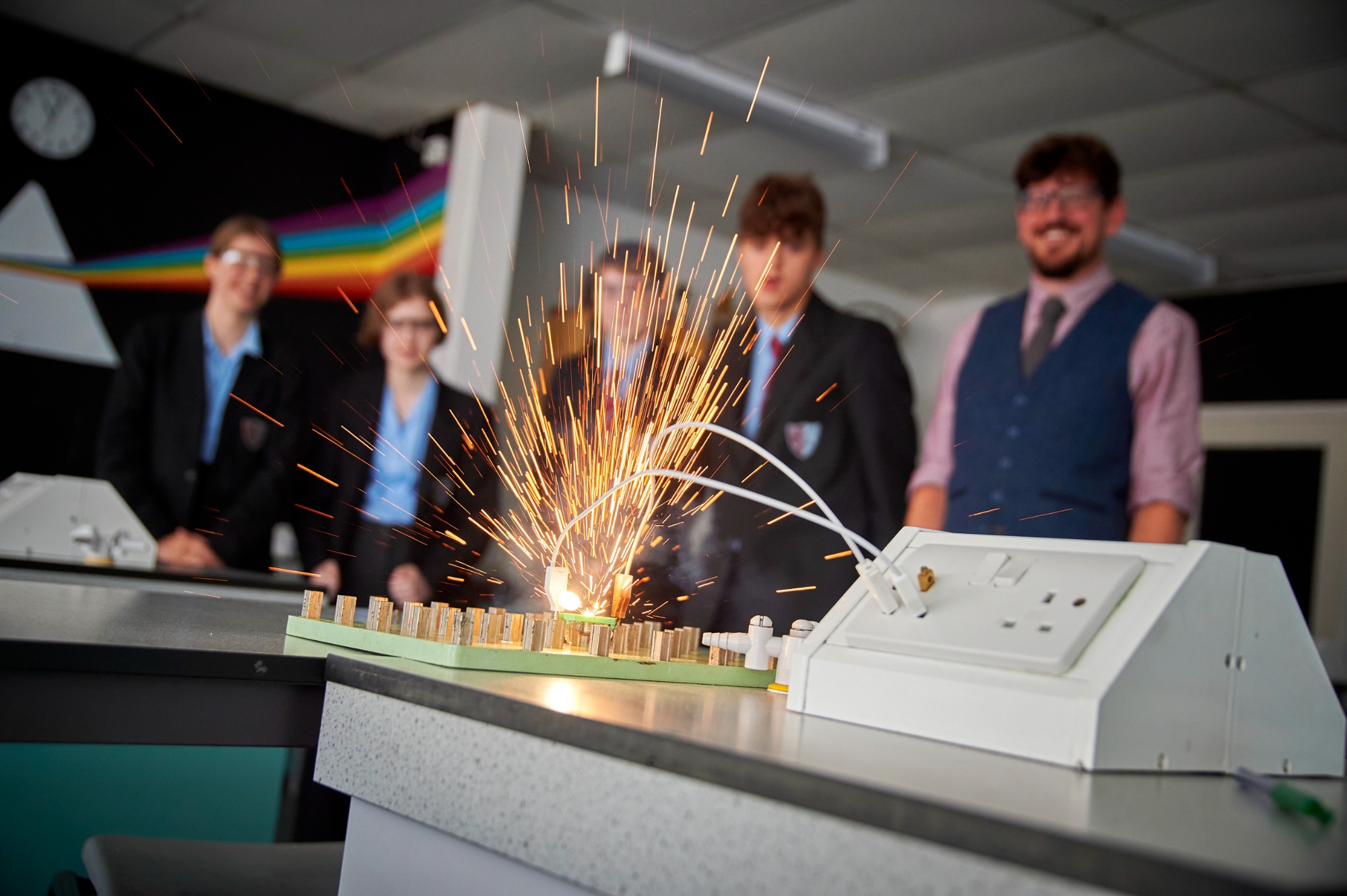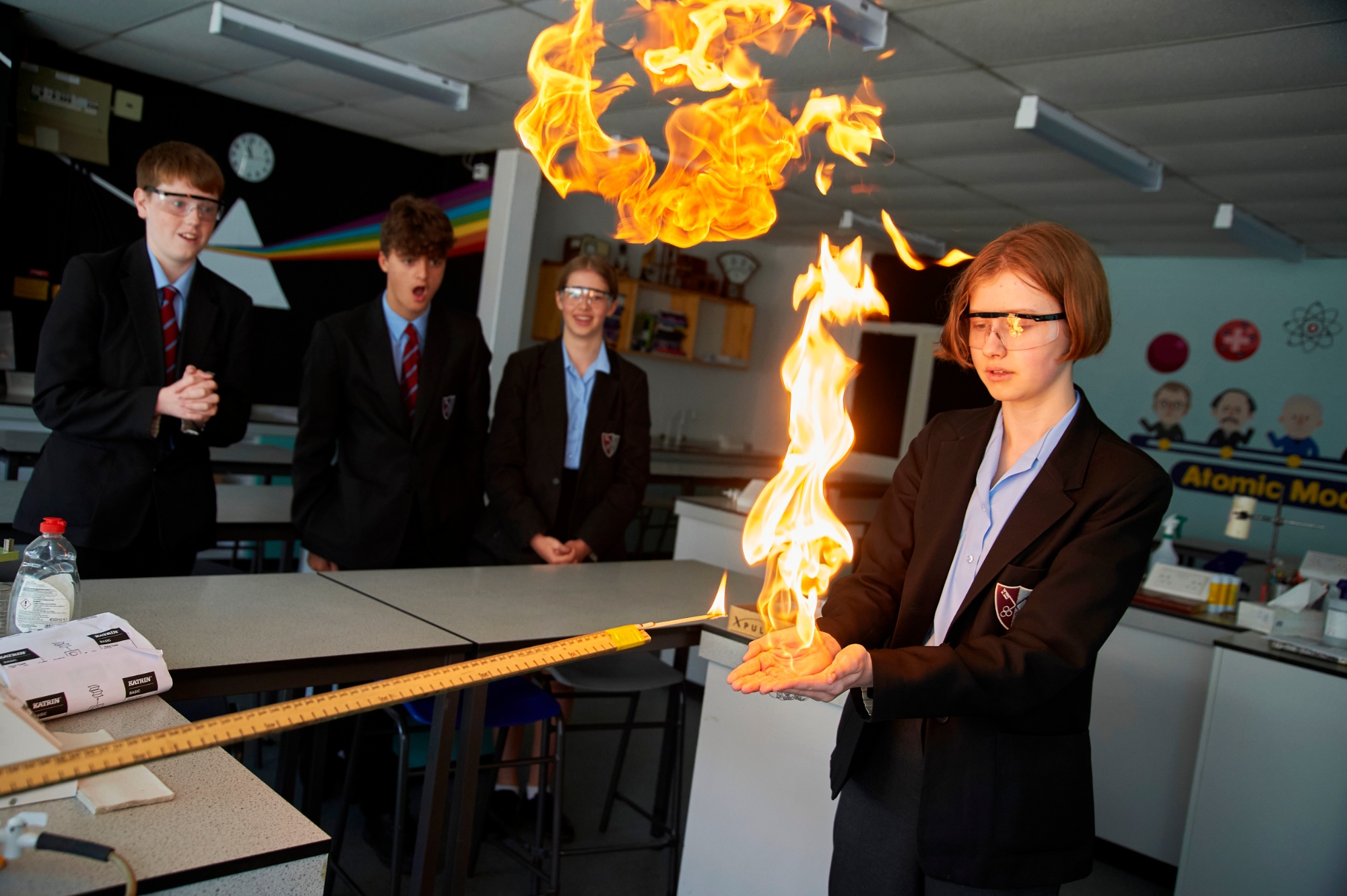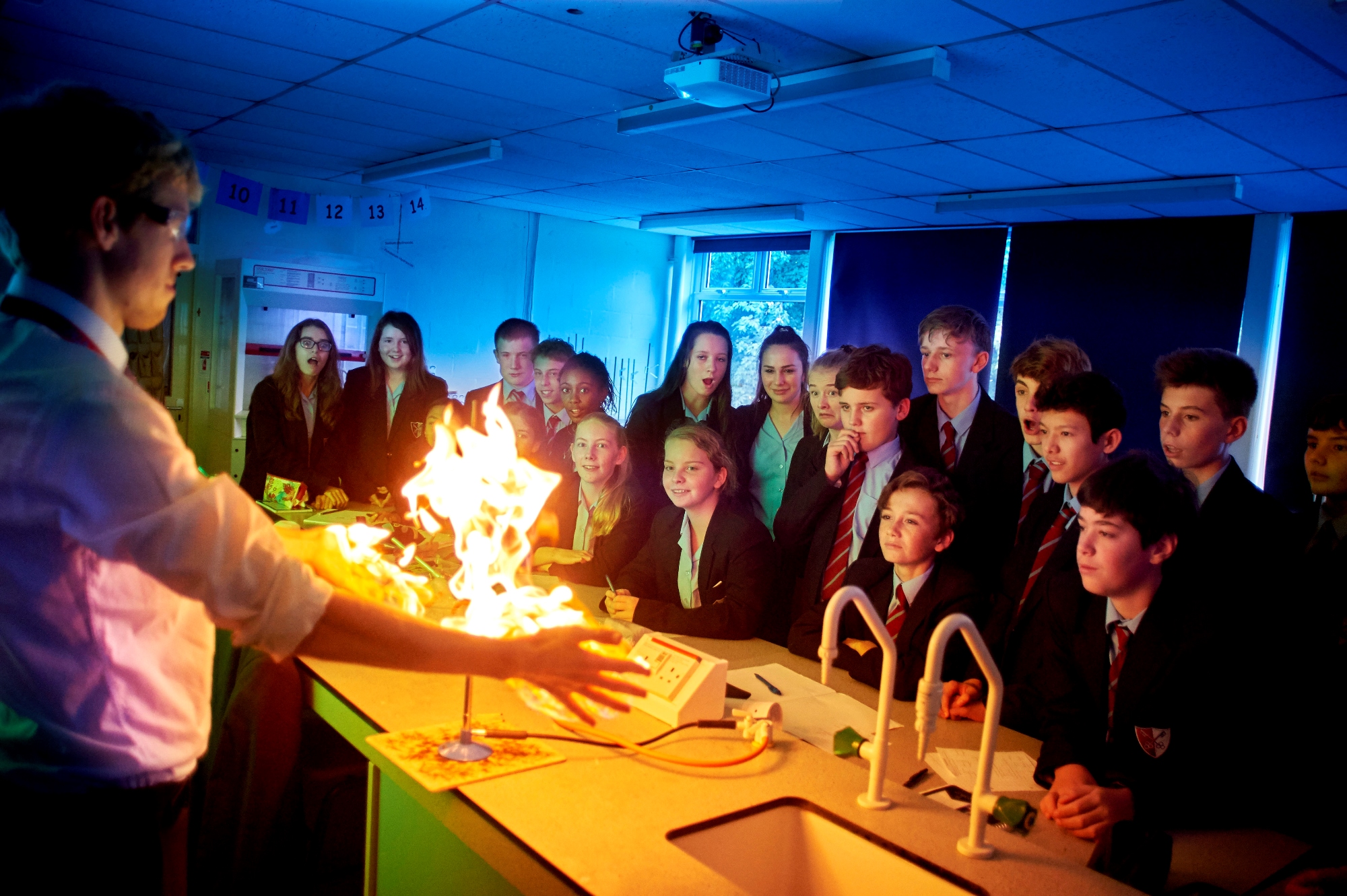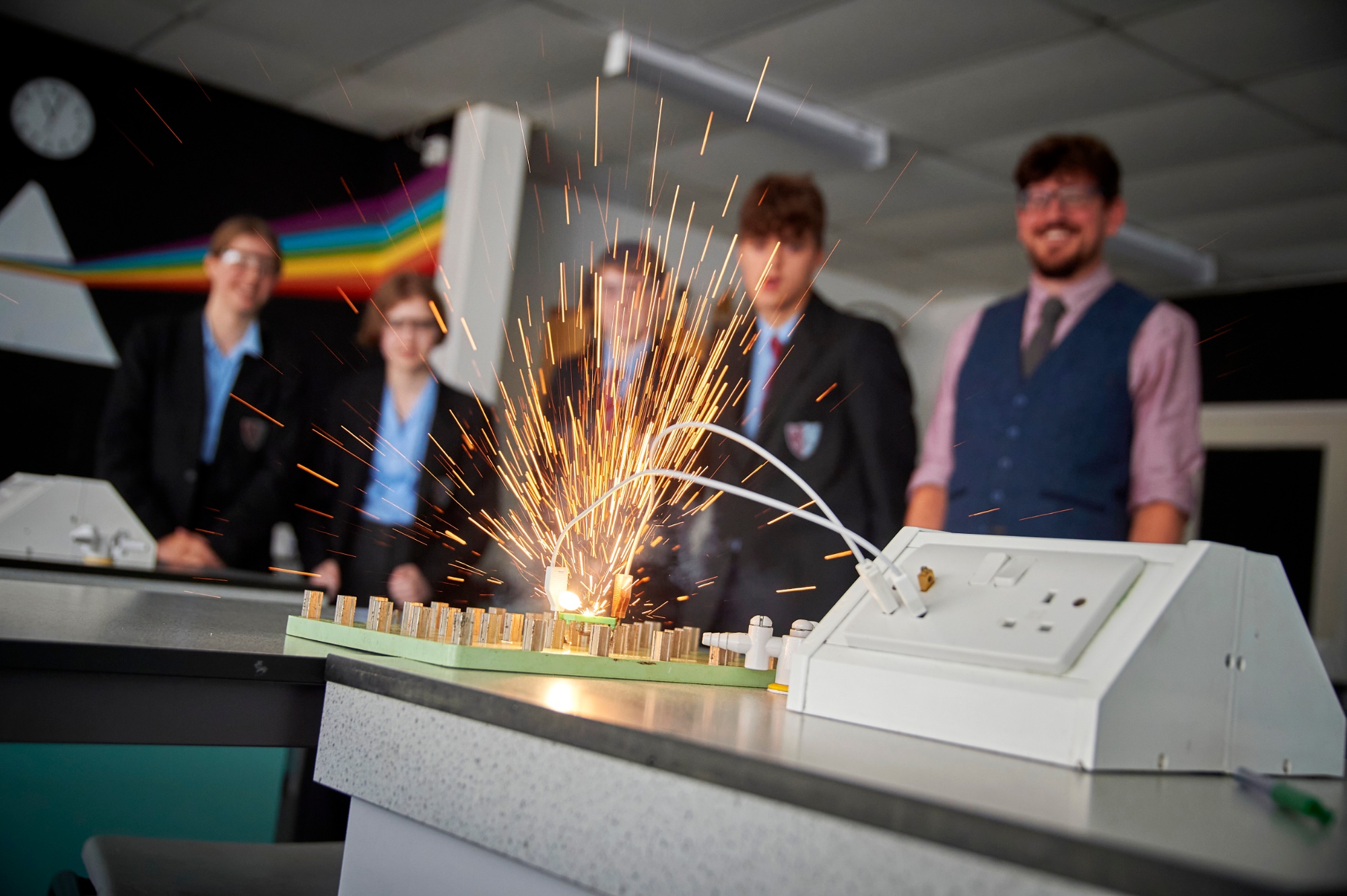Science
 Mr M Cartledge
Mr M Cartledge
Head of Science
The Team
| Mr B Rana | Teacher of Science (Chemistry) |
| Mr E Brewer | Head of Biology |
| Miss F Brooks | Teacher of Science (Biology and Physics) and Assistant Headteacher |
| Miss T Byrne | Teacher of Science (Chemistry) |
| Mrs C Cooper | Teacher of Science (Biology) |
| Ms Hockley | Teacher of Science |
| Mr J Lo | Teacher of Science (Physics) |
| Mrs S McLaughlin | Teacher of Science (Biology) |
| Mrs J Osborne | Teacher of Science (Biology) |
| Mr J Paterson-Spir | Head of Physics |
| Mr D Woodhouse | Head of Chemistry |
Technical Team |
|
| Mrs M Barnes | Science Technician (Biology) |
| Mrs K Fewson | Science Technician (Chemistry) |
| Mrs D Payne | Science Technician (Physics) |
Introduction to the Department
We seek to ensure that students experience a good balance of subject knowledge and understanding with the skills of scientific enquiry. This includes opportunities for students to engage in practical work, fieldwork, research, use of ICT, individual and group work, discussions, modelling and evaluation. Teachers also aim to make the teaching of science relevant to students’ lives.
Science subjects are designed to provide students not only with a basic knowledge but also with a range of skills and ideas that will be of use in further and higher education and in their life as members of society. They will learn to recall relevant knowledge and to show understanding of basic facts, concepts and principles, using appropriate terminology. They will develop an understanding of the power and limitations of scientific ideas. They will be able to select, organise and present relevant information, and evaluate ideas in order to make informed judgements on the complex issues that appear in the media with increasing regularity.
Key Stage 3 Information
Years 7 - 9
As a science department we aim to guide all students to become inquisitive, independent and inspired students of science, who have an excellent foundation of knowledge and who use their skills to better understand and improve the world around them. Our mastery curriculum has been designed to aid students in building this foundation of fundamental scientific knowledge in a range of fascinating contexts that develop their core skills of description, explanation, ability to determine, and evaluate through completing a wide variety of activities including practical work, projects, and presentations.
Each subject has key concepts which are built on each year, adding to their complexity, and allowing students to link ideas together within and between each discipline.
Biology
- Cells and Transport: Fundamental to the study of life, be it multi-cellular or unicellular.
- Organisation: How do you build an organism from cells, and how do so many of them work together to create such complex systems of life?
- Bioenergetics: The two most essential processes in all of Biology, how life is dependant on them and how it adapted to maximise their use.
- Ecology, Variation and Evolution: How do the systems of the natural world fit together, what is our effect on these systems and what happens when they change?
- Genetics: From understanding why our children look similar or different to us, to manipulating the genetics of crops to increase yield. Genetics is one of the most important fields of our Biological future.
Chemistry
- Particles: An understanding of how the world around us is made up of particles, and the ways that those particles interact
- Navigating the Periodic Table: Using the most versatile tool in chemistry!
- Chemical Reactions and Energy: Why things happen, how quickly, and tracking the reactions using data.
Physics
- Forces: An understanding of what makes things happen.
- Energy: Something that has existed as long as time itself – it can never disappear, only hide itself in other form
- Electricity and Magnetism: How can the movement of charge power the world around us? Learn how to use a electricity to pick up a block of metal!
- Waves: Light and sound are how we understand the world around us. Learn about the spooky nature of colour and how speakers and ears are so similar
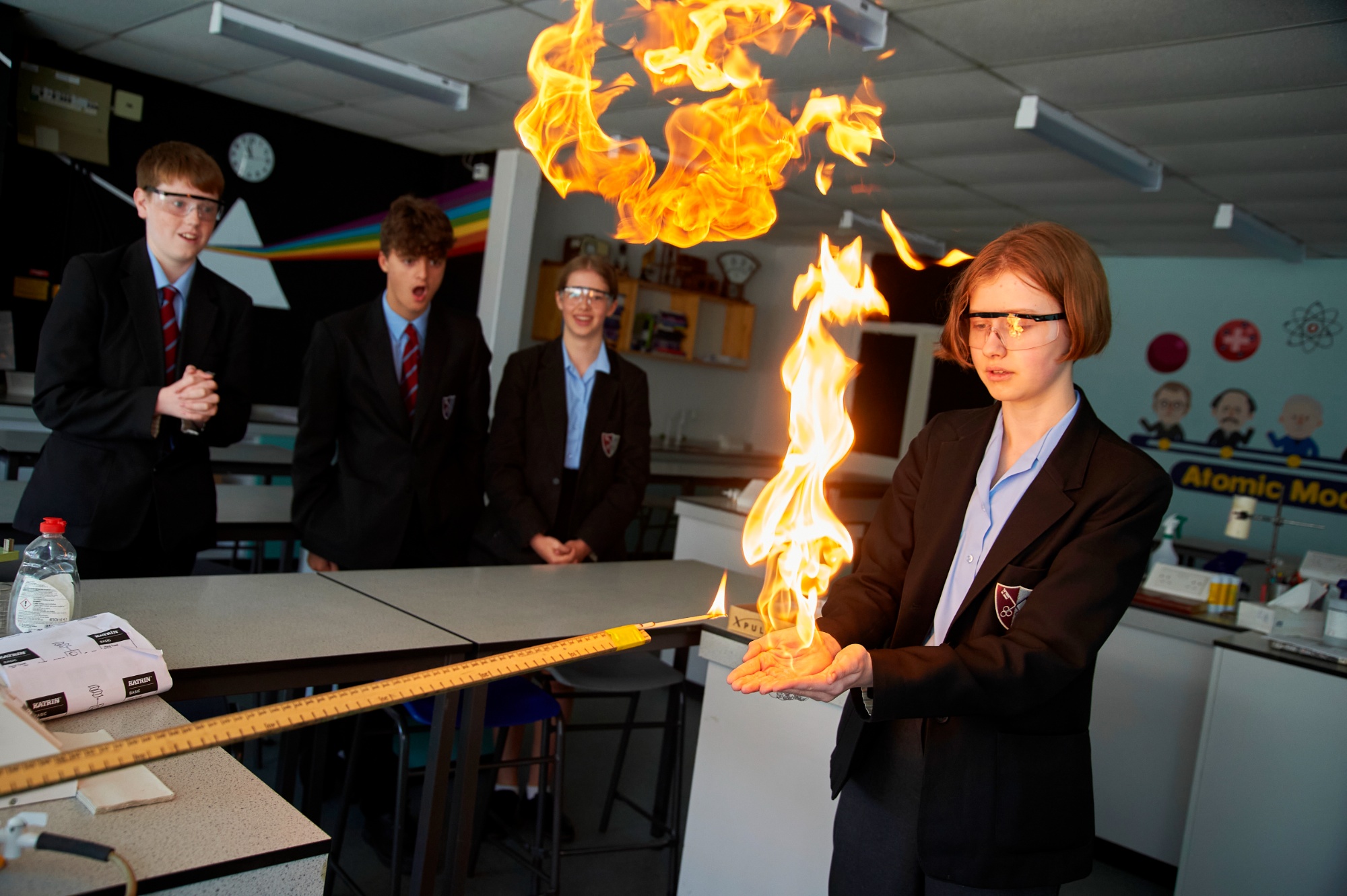
Key Stage 4 Information
Students study the AQA Science syllabus. The course builds on the concepts introduced during Key Stage 3, developing and inspiring future scientists whilst providing a good scientific grounding for future study.
In Years 10 and 11, students will either take ’Combined Science: Trilogy’ which is two science GCSEs that are an average of exam scores in Biology, Chemistry and Physics, or three separate science GCSEs if they are in the top set. Setting will be finalised using the end of year 9 science assessment. All students will be taught by three teachers specialising in Biology, Chemistry and Physics.
Every student will take six exams in Year 11, two for each science, and students are required to complete a series of practical tasks through the teaching course. 15% of the marks asked in the exam papers will draw upon and analyse the learning experiences of these practical tasks. This is to ensure that all of the students have benefited from the learning opportunities of a number of core practical activities and is a requirement of the new specification.
Biology course content
|
Paper 1 |
Paper 2 |
|
|
Chemistry course content
|
Paper 1 |
Paper 2 |
|
|
Physics course content:
|
Paper 1 |
Paper 2 |
|
|
